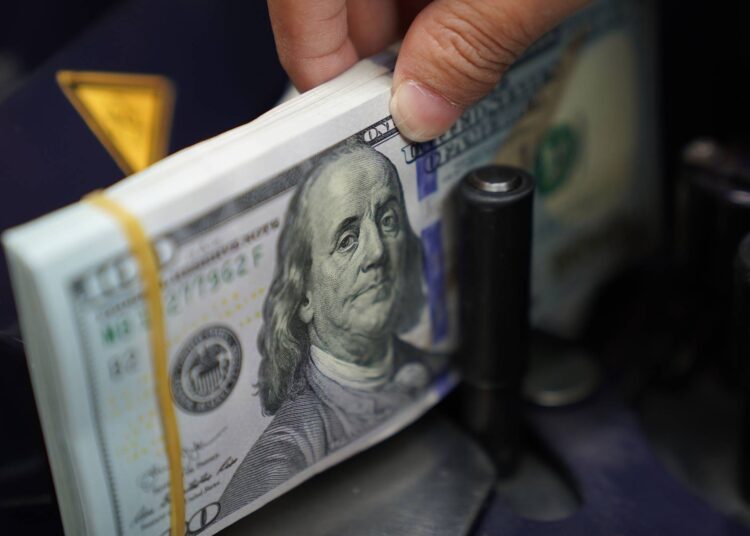In contesting the assertion that American influence within Iraq hinges mainly upon its military presence, quantified by the deployment of some three thousand soldiers, a broader spectrum of influence emerges — one that acknowledges the leveraging of economic tools.
By: Saber Golanbari
Iran’s trade with Iraq, counterpointed against other significant trade partners such as UAE and China, is critical with Baghdad being one of noteworthy economic partners of Tehran. Iran’s 11 billion trade engagement pales compared to the UAE’s 16 billion and so next to China’s vast 53 billion trade volume. However, the volatile economic climate threatens to eclipse this vital relationship, potentially granting increased influence to key contenders like Turkey, the UAE, and Saudi Arabia, who are actively fortifying their trade and investments in Iraq.
Recent US sanctions, levied against 14 Iraqi banks due to dollar transactions with Tehran, serve not solely as economic impediments but rather, as calculated tools of American attempt — meticulously crafted to divest Iran from the Iraqi market. A phenomenon that could be facilitated by existing issues with the payment for electricity and gas exports to Iraq as a result of US sanctions, and further agitated by Washington’s intermittent release of funds.
The frail banking system in Iraq, compounded by these sanctions, impairs Baghdad’s capacity for trade with Iran and escalates fear of augmented sanctions in the future. This may also raise more concerns among other nearby countries, which have somewhat enhanced their level of commerce with Iran in recent years, regarding their trade relations with Tehran. A delay in the payments for the debts of Baghdad to Tehran, spurred by US sanctions and sporadic American mandates, could potentially augment the deterrent factor of such sanctions for policymakers in other countries.
To mitigate the escalating electricity crisis, Baghdad is exploring multiple projects. Link-ups to the electrical grids of Persian Gulf countries, Saudi Arabia, Jordan, and Egypt are in the pipeline. These initiatives aim to secure approximately 4,000 megawatts of electricity to cater to the country’s essential needs over the next couple of years. Iraq currently relies on Iran for an identical amount of electricity. However, its power plants, which have a production capacity of 20,000 megawatts, depend on imported gas from Iran. Iraq is presently unable to function without Iran’s electricity and gas, but it intends to progressively reduce its reliance on it with the plans it has on the agenda.
For a consistent 24-hour electricity supply, the Iraqi administration requires 15,000 megawatts. To fulfil this, the government, along with its plan to connect to the electrical grids of few countries, has formulated relevant pacts that include a $10 billion contract with Total Energy to generate 1,000 megawatts of solar energy and another with German’s Siemens Energy company to refurbish power plants and produce additional 5,000 megawatts of electricity. It’s further speculated that by 2030, Iraq may potentially attain self-sufficiency in gas supplies for these power plants.
Challenging the simplistic viewpoint of those who equate the clout exerted by the United States in Iraq to its military presence, quantified by the stationing of three thousand soldiers, reveals a more nuanced reality. The source of this influence isn’t merely the external militaristic hardware, but rather, resides in softer forces such as the economic apparatus. It transcends the positioning of the United States as an economic titan, necessitating nations to conform to its sanctions.
The economic lifeline of Iraq, in practical terms, has been in the grip of the United States since 2003. Under the auspices of agreements orchestrated ostensibly to shield Iraqi assets from the plight of nations adversely affected by the late dictator Saddam Hussein’s policies, Iraq’s oil revenues have been systematically deposited into an account in the US Federal Reserve. Despite the nullification of the original raison d’etre by resolving war compensations worth 52 billion dollars to Kuwait and asserting a clean slate devoid of any pending grievances from other nations, the oil revenues of Iraq continue to be channeled into the said account attached to the US Federal Reserve.
While the 2008 agreement symbolically transitioned the management and supervision of these resources to the Central Bank of Iraq, the United States retains a watchful eye over these assets, which have now swollen to approximately 115 billion dollars. Iraq’s ability to transfer even a cent from this fund remains heavily contingent upon approval from the US Federal Reserve.
The mechanism for withdrawal from this account is layered with bureaucratic checkpoints. Initially, the Central Bank of Iraq must articulate a clear purpose for the withdrawal request, followed by a comprehensive explication of the allocated expenditure. Following a meticulous review period of approximately 20 days, the assets are transported, through airplane, to Baghdad, with the cost of transit and insurance duly factored in.
Coinciding with these developments, Iraq has also doubled down on its investments in American securities over the past two years, escalating the figure to 40 billion dollars.
In light of these revelations, the command over Iraq’s foreign trade rests squarely in the palms of the United States. If Washington intensifies its pressure on Baghdad to curb trade with Iran, as evidenced by the recent banking sanctions following Iraq’s connection to the financial messaging service, SWIFT, Iraq will have practically no capacity to withstand.
The views expressed in this article are those of the author and do not necessarily reflect the positions of Iran Nuances.






